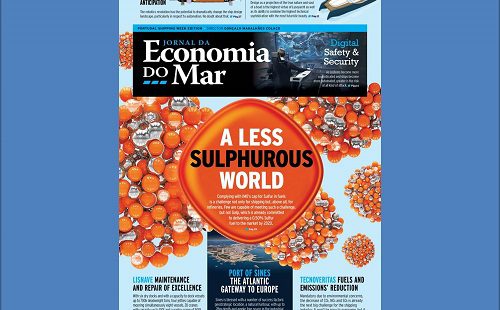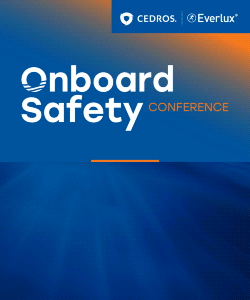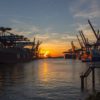Ironically – or perhaps not – this evolution led to an inexorable increase in the complexity of life, creating new difficulties as fast as the problems conquered, which now also needed to be resolved and overcome.
It is a vicious cycle that man has managed, to some extent, to transform into a kind of virtuous cycle of development.
Such has been the case with shipping where, as with any business, the first question is necessarily: how do you foresee the evolution of demand in the future?
It is the million dollar question.
What is it that we know and consider as known in so far that we can consider anything already known?
In principle, that which we can determine as more or less certain, in accordance with the evolution of the world, is that the consumption that we have experienced will continue to rise.
Unfortunately, three factors compete to moderate any optimism we may hold. Firstly, 3D printing continues to create profound disruption in manufacturing; we know the disruption will be profound, but not yet to what extent, nor are we able to quantify. Nor, in second place, are we able to say what disruptions the natural economic and social development in Asia will lead to, although we are aware that the competitive advantages of the past are unlikely to remain in the future. Moreover, and of no lesser importance, there will be alterations in consumer behaviour brought about by profound technological change, with an economy increasingly characterized by sharing and largely devoted to entertainment.
Besides the sale of consumer goods, it would seem that, at the moment, not even the trade in raw materials is stable. Suffice to consider the energy transition to work out what this means, as well looking at the more or less ghost cities already built and spread across China.
Meanwhile, what we know is that: a) as a matter of survival, man is increasingly concerned with environmental matters; b) the growing territorialization of the sea is also evident and, whether exactly for environmental reasons or because mineral resources on land are increasingly scarce, mineral extraction from the seabed is inevitable. In today’s world, living at the beginning of a new Post-French Revolution era, dominated essentially by economic conflict, we should not be surprised at the widening gap between Blocs and no-one can say what will happen and what the consequences will be.
However, environmental concerns have immediate repercussions, not least the need for and imposition of reductions of emissions of CO2, NOX e SOX, or ballast water management, which may lead to equally profound and immediate alterations, inclusively, in regards to investment needs.
When we consider investment in the context of a growing trend towards autonomous ships and seeing the extraordinary scale of the new aircraft carriers, it is clear that the world is changing and that there are other challenges, including financial, that are increasingly relevant.
Automation goes well beyond ships, however; it also affects ports, road transport, railways and processes, leading to the idea that shipping is simply becoming another element of the logistics whole.
How far will this transformation go? When will we see the rise of a new type of logistics ecosystem led by shipping, totally integrated but, at the same time, totally decentralized?
Is this not an inevitable trend, given the possibilities offered by a new technology such as the blockchain, allowing even the creation of a new currency solely for the shipping world?
The challenges are enormous, without question.
And Portugal, a pioneer of the modern world since the first globalization, has an important contribution to give.
And it may have an important contribution owing to its own idiosyncrasy, to a great extent contrary to the era of industrialization, to massification, but with a systematic vision of the world and a prodigious imagination — a uniqueness – making it the ideal location to set up new Centres that will be necessary for research, development and innovation that will be required, whether for shipping, for robotics, automation, biotechnology, new energies or whatever.
If Portugal did not tire in other eras while embracing the world, from America to Australia, from Africa to the Indigo, not forgetting China or Japan, we know that it will not relax now until it has discovered “the new Indias that do not appear on the maps”.
- SEAL faz novo pré-aviso de greve
- Portugal e Reino Unido devem receber eventos da indústria marítima
- Declaração Conjunta da Oceans Meeting lida hoje
- Lisboa recebe Energy Observer
- Hackers, qual o cuidado que devemos ter?
- A estratégia de cada cruzeiro deve ser “única”
- Defesa do GNL na Portugal Shipping Week
- Portugal Shipping Week na viragem do transporte marítimo em Portugal












